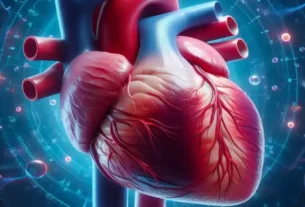A 31-year-old Japanese man died a few years ago and a labor inspector concluded that he died from overwork, as he had been working many hours of overtime for days. The official cause of death was attributed to heart failure due to “karoshi”, a Japanese term used to describe “death from overwork”.
Karoshi
Karoshi is a recognized phenomenon in Asia, described in the mid-20th century, which has been the subject of various research studies, but is little known in Western countries. Various scientific publications have highlighted the possibility of karoshi, and have shown its epidemiology and the effects of overwork on cardiovascular deaths in Asian countries.
Some authors have linked karoshi to takotsubo cardiomyopathy, also described for the first time in Japan. It is a well-known and studied pathology, which has been called stress cardiomyopathy or “broken heart syndrome”. It is a consequence of sudden emotional stress, such as receiving bad news, which results in an acute depression of the contractility of a part of the heart muscle leading to heart failure and/or arrhythmias.
Mechanism
Takotsubo syndrome is thought to be a consequence of hormonal and neurological changes caused by intense emotional stress, which lead to deterioration of myocardial function. It is possible that chronic stress accumulated over a period of time, such as that produced by chronic overwork, could lead to cardiac alterations similar to those that can be produced by acute stress.
Increased blood levels of the so-called stress hormones, especially catecholamines, are a normal physiological response to a stressful situation, but are aimed at solving acute problems, such as bleeding. However, it is known that the long-term elevation of these hormones can lead to vasoconstriction (and therefore, decreased blood flow to the tissues), high blood pressure and arrhythmias.
Rest and sleep are necessary for the recovery of the state of rest, and thanks to this, hormone levels are normalized and consumed substances are resynthesized. When a person works continuously, without rest and with little time for sleep, the levels of stress hormones remain high. Therefore, working continuously for a long time, such as for weeks or months, without adequate rest, can culminate in cardiovascular complications.
Conclusion
Laws in many countries recognize the need for a work-life balance, but companies often do not take this into account and demand excessive working hours from their employees. Due to economic needs and work pressures, many people work for long periods of time without interruption, sometimes in multiple jobs. They are not being able to reconcile their work activity with family and personal obligations, even to the point that they have no time for their own self-care, and neglect their diet and hours of sleep. All of this can lead to repetitive physiological hormonal responses to stress, producing a negative effect on the cardiovascular system over time and “death from overwork”.
Unveiling the Global Surge: Unraveling the Factors Fueling the Spread of Karoshi Syndrome



